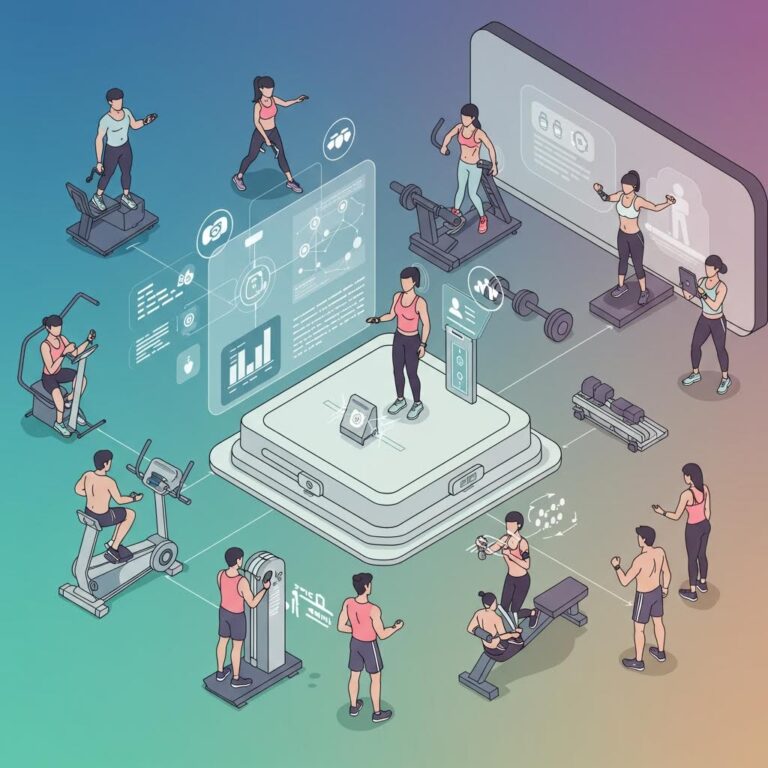Debunking Casino Crypto Mining Conspiracy: Technical Analysis
The Technical Impossibility of Casino Crypto Mining
Casino gaming systems cannot secretly mine cryptocurrency through players’ mobile devices – this viral claim fundamentally contradicts core technical realities. Purpose-built ARM processors used in casino equipment operate on completely different architectural principles than those required for cryptocurrency mining operations. These systems maintain strictly segregated networks protected by multiple security layers and operate under intensive regulatory oversight.
Mobile Device Limitations and Mining Requirements
Mobile devices fundamentally lack the specialized hardware configurations necessary for profitable cryptocurrency mining. Effective crypto mining demands dedicated ASIC/GPU setups capable of performing billions of calculations per second – far beyond the processing capabilities of any smartphone or tablet. The computational demands would instantly reveal any attempted mining operation through extreme battery drain and device overheating. 솔루션 라이선스 포함 여부 확인
Regulatory and Security Controls
Network Infrastructure
Casino gaming networks implement rigorous security protocols and maintain complete isolation from external connections. All transactions and operations occur within closed systems that undergo constant monitoring and regular security audits.
Compliance Requirements
Licensed casinos must adhere to strict regulatory compliance standards that preclude unauthorized code execution or hidden processes. Gaming control boards conduct thorough technical reviews of all casino systems, making covert mining operations technically impossible and legally prohibited.
Hardware Verification
Every component in casino gaming systems undergoes certified testing and verification. The specialized gaming processors are designed exclusively for randomized game outcomes and secure payment processing, lacking the architectural capability to execute mining algorithms.
Understanding Casino Network Security Systems
Casino Network Security Systems: A Comprehensive Guide
Multi-Layered Defense Architecture
Modern casino network security implements a sophisticated fortress of defenses protecting both digital and physical gaming assets.
The infrastructure utilizes segregated networks, with gaming floor operations running on completely isolated systems from hotel services and guest internet access. This critical separation ensures maximum protection against unauthorized access and system compromise.
Advanced Monitoring and Detection
Intrusion detection systems (IDS) and intrusion prevention systems (IPS) form the backbone of casino cybersecurity, providing continuous 24/7 network surveillance.
Every gaming machine maintains secure connectivity to a central monitoring system through heavily encrypted channels, with real-time transaction verification and comprehensive logging protocols.
Security Controls and Compliance
Access Management
Role-based authentication protocols govern all system access, implementing stringent controls that restrict personnel to specific network segments based on security clearance and job function.
Advanced firewalls and virtual private networks (VPNs) create impenetrable data transmission tunnels, securing sensitive information flow throughout the casino infrastructure.
Regulatory Compliance
Casinos maintain rigorous adherence to gaming commission requirements through:
- Regular security audits
- Comprehensive penetration testing
- Continuous compliance monitoring
- Real-time threat detection
- Automated security responses
This robust security framework effectively prevents unauthorized system access and ensures the integrity of all gaming operations.
#
How Cryptocurrency Mining Actually Works
# How Cryptocurrency Mining Actually Works
The Core Process of Crypto Mining
Cryptocurrency mining operates through a sophisticated computational process where high-performance computers solve complex mathematical puzzles to validate and append new transaction blocks to a blockchain network.
Mining hardware, specifically ASICs (Application-Specific Integrated Circuits) and advanced GPUs (Graphics Processing Units), compete intensively to discover specific hash values that meet stringent network difficulty requirements.
Technical Mechanics Behind Mining
The mining workflow consists of several critical steps: transaction verification, block assembly, and proof-of-work challenge completion.
Miners employ cryptographic hash functions repeatedly, processing data until discovering a solution matching precise target parameters. This resource-intensive operation requires substantial computational power and generates significant electricity consumption.
Infrastructure Requirements and Hardware Specifications
Mining operations demand robust infrastructure components including:
- Advanced cooling systems
- Sophisticated power management solutions
- High-speed network connectivity
- Temperature control mechanisms
- Uninterrupted power supply
Modern mining rigs perform billions of calculations per second, requiring specialized equipment far beyond standard computing devices.
The intensive computational demands make effective mining impossible through conventional gaming hardware or mobile devices, debunking myths about covert mining operations through casino gaming equipment or portable devices.
Debunking Common Mobile Device Myths
Debunking Mobile Device Cryptocurrency Mining Myths
The Truth About Mobile Mining Capabilities
Mobile devices fundamentally lack the computational architecture required for profitable cryptocurrency mining.
ARM-based mobile processors are inherently incompatible with modern crypto mining demands, making them vastly inferior to dedicated ASIC miners and high-performance GPUs for blockchain calculations.
Technical Limitations of Mobile Mining
Processing Power Constraints
Modern smartphone architectures are specifically designed for energy efficiency and everyday computing tasks.
The ARM processor framework proves inadequate for handling complex mining hash algorithms essential for Bitcoin, Ethereum, and other cryptocurrencies.
Mobile processing units can’t sustain the intensive parallel computations required for profitable mining operations.
Hardware and Battery Implications
Mobile cryptocurrency mining attempts would yield negligible returns – mere cents per day – while risking serious hardware damage.
Device overheating and excessive battery drain make covert mining operations immediately detectable.
Thermal throttling mechanisms and power management systems built into mobile operating systems actively prevent sustained mining activities.
Casino Mining Conspiracy Debunked
Claims regarding casinos secretly mining cryptocurrency through visitor devices lack technical merit.
Mobile device limitations make such operations impossible due to:
- Insufficient processing capabilities
- Built-in thermal protection systems
- Obvious performance degradation
- Immediate battery life impact
- Operating system restrictions
These inherent hardware constraints and architectural limitations definitively prove that mobile devices remain unsuitable platforms for cryptocurrency mining operations, whether overt or covert.
Legal Implications of Unauthorized Mining
Legal Implications of Unauthorized Cryptocurrency Mining
Criminal and Civil Liability
Unauthorized cryptocurrency mining operations face severe legal consequences across jurisdictions worldwide.
Organizations conducting covert mining activities through customer devices risk violating multiple laws, including the Computer Fraud and Abuse Act (CFAA) and state-level cybersecurity regulations.
Resource Theft and Financial Penalties
The unauthorized use of computing resources and electricity for cryptocurrency mining constitutes theft of computing resources. This illegal activity triggers both criminal and civil penalties. Organizations can face charges of:
- Computer trespassing
- Unauthorized system access
- Digital fraud
with potential fines reaching millions of dollars in damages.
Regulatory Enforcement Actions
Federal Trade Commission Oversight
The Federal Trade Commission (FTC) actively pursues enforcement actions against crypto-jacking operations under Section 5 of the FTC Act, which prohibits unfair or deceptive business practices.
State attorneys general maintain authority to file lawsuits protecting consumers from unauthorized mining activities.
Gaming Industry Implications
For casinos engaging in unauthorized cryptocurrency mining through customer devices, consequences include:
- Gaming license revocation
- Substantial regulatory fines
- Class-action lawsuits
- Privacy violation penalties
- Breaches of fiduciary duty
Legal Framework and Compliance
Cryptocurrency mining regulations require strict adherence to legal protocols and user consent requirements.
Organizations must implement robust compliance measures to avoid legal liability and maintain operational integrity within regulatory boundaries.
The Real Tech Behind Casinos
The Real Tech Behind Modern Casino Operations
Advanced Gaming Systems Architecture
Modern casinos operate on a foundation of sophisticated technological infrastructure that seamlessly integrates multiple systems.
The centralized management systems (CMS) form the core of casino operations, coordinating everything from gaming floors to back-office functions through secure network protocols.
Random Number Generation Technology
Certified RNG algorithms stand as the cornerstone of fair gameplay in casino operations.
These systems undergo stringent certification processes through regulatory authorities like Gaming Laboratories International (GLI).
Each gaming machine connects to central servers through isolated networks, ensuring complete security and operational integrity.
Specialized Gaming Hardware Infrastructure
Casino gaming machines utilize purpose-built processing systems specifically engineered for gaming applications. The hardware architecture focuses on:
- Real-time game logic execution
- Secure CMS communications
- High-performance graphics rendering
- Player input processing
- Transaction management
Performance Optimization Systems
The processing infrastructure employs dedicated gaming calculations optimized for:
- Instant response times
- Continuous operation capability
- Secure data transmission
- Real-time player tracking
- Performance monitoring
- Automated reporting systems
These specialized systems maintain optimal efficiency through purpose-specific hardware configurations designed exclusively for gaming operations.


